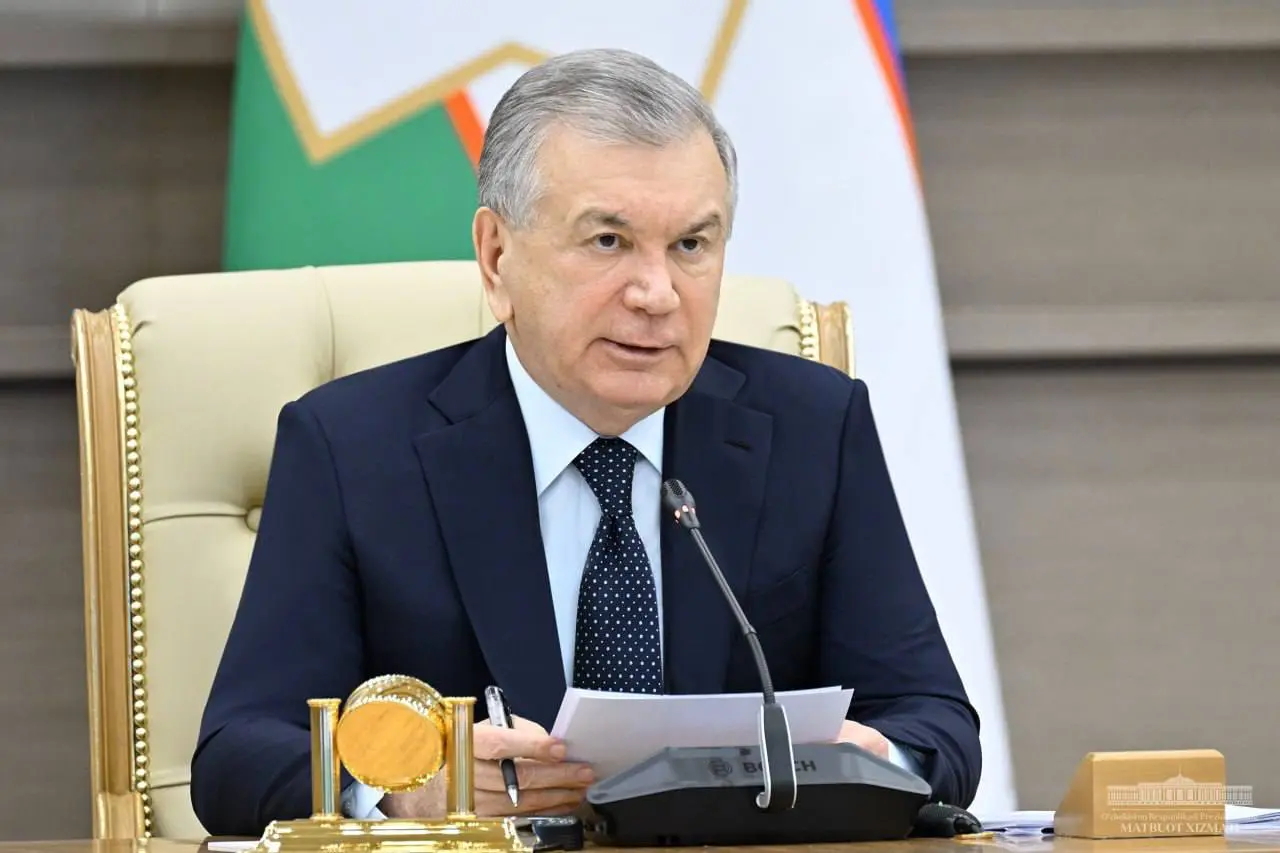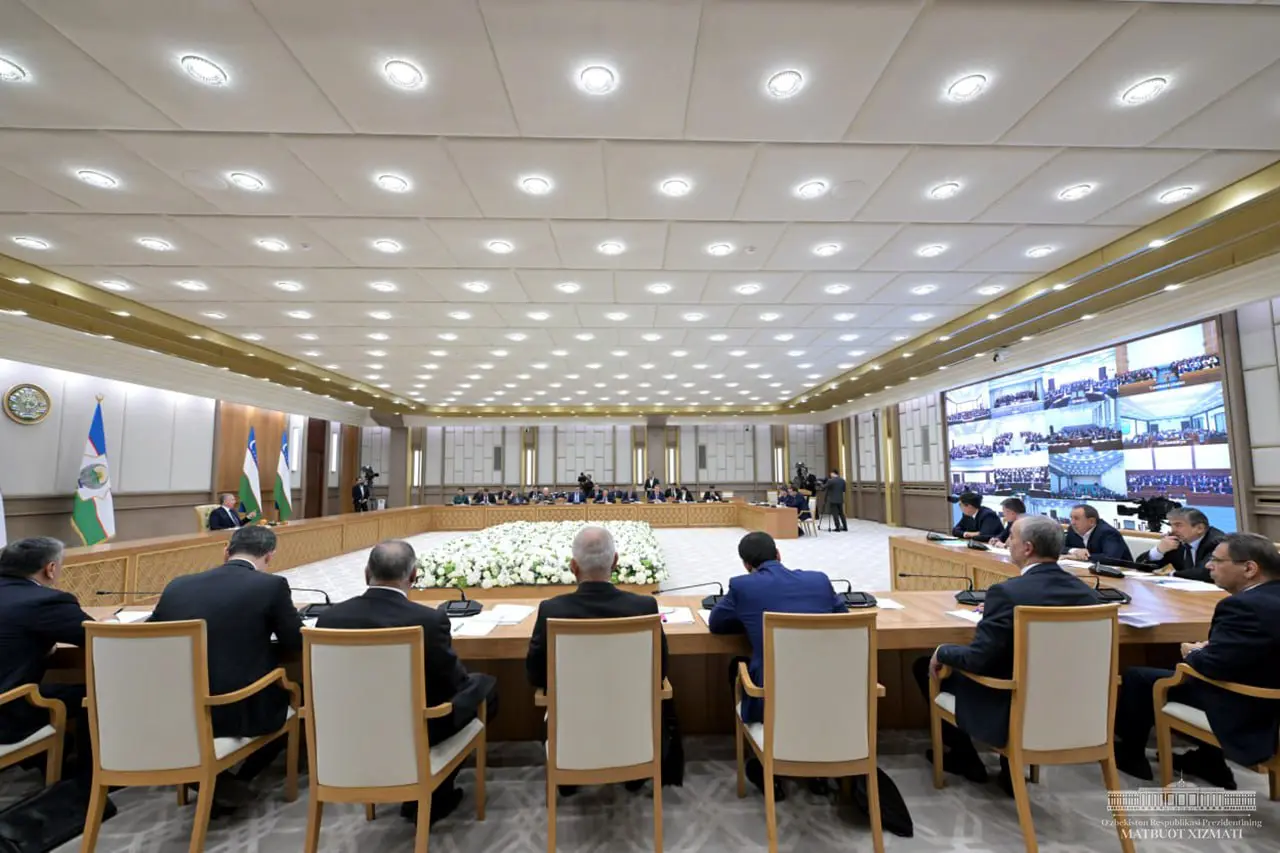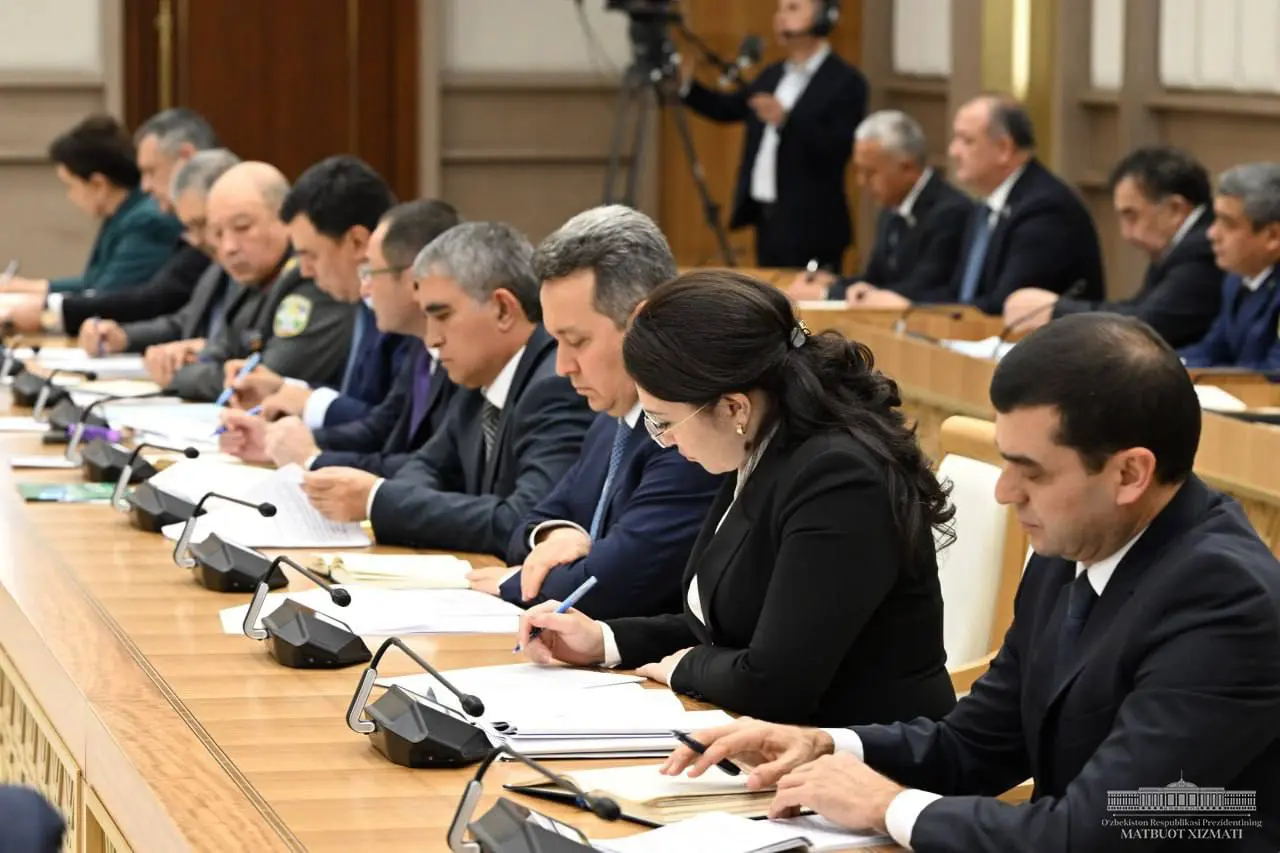Next year, Uzbekistan aims to allocate UZS 100bn ( $7.8mn) to the "Yashil Makon" (Green Nation) project, encompassing a three-year plan focused on tree maintenance, disease protection, and irrigation expenses, presidential press service reported.

Under the leadership of President Shavkat Mirziyoyev, a video selector meeting was convened on October 21 to evaluate the progress of the national project "Yashil Makon" (Green Nation) and outline future priorities. The initiative aims to plant 200mn trees and shrubs annually, with a target to increase Uzbekistan’s greenery to 30% by 2030, up from the current level of 12%.
During the meeting, it was noted that this spring alone saw the planting of 138mn seedlings across the country. More than 10,000 hectares have been designated for green belts, and 257 parks have been established by various ministries and local governments. Additionally, green cover on the coastal island has expanded to over 2mn hectares.
As part of efforts to engage the community, 2,000 hectares of land adjacent to roads, rivers, and canals were leased to 10,000 residents and entrepreneurs for planting. The “My Garden” project has allocated UZS 49bn ($3.8mn) from the budget, facilitating the establishment of 215 new gardens in neighborhoods.
These initiatives have garnered recognition from the International Union for Conservation of Nature and the executive body of the Convention to Combat Desertification. However, President Mirziyoyev expressed concern over lapses in certain areas, noting instances where saplings were planted without adequate irrigation systems, or trees were not replaced following removal.

The meeting outlined specific tasks for the upcoming seasons, highlighting the importance of cultivating seedlings that are well-suited to Uzbekistan's climate. Collaborations with scientific organizations, agricultural and ecological institutions, and higher educational establishments are expected to enhance the production of seeds and seedlings.
Next year, four gardens of halophyte plants, resilient to drought and salt, will be established in the Nukus, Arnasoy, Karakol, and Mubarak districts. Furthermore, drones will be employed to sow saxovul and sugarcane seeds across 250,000 hectares of desert in regions such as Karakalpakstan and Jizzakh.
The initiative aims to cultivate 2mn seedlings using closed root containers and the in-vitro method, drawing on successful practices from South Korea. Additionally, 10mn fruit seedlings will be produced annually across various regions.
Community involvement is central to the project, with neighborhoods encouraged to grow 6mn decorative trees and an additional 3mn saplings in streets and vacant lots. Overall, 20mn ornamental and fruit trees are planned for neighborhoods.
The Forestry Agency has been directed to facilitate a seedling fair in all neighborhoods, aiming to distribute 30mn seedlings. Educational institutions and hospitals are expected to contribute by planting 2.5mn trees, while 40mn saplings are to be planted in the autumn.

Specific initiatives include planting 9mn trees along 13 international highways and utilizing 2,000 kilometers of roadways for sapling distribution. The Department of Defense has been tasked with planting 200,000 trees, while the Interior Ministry, National Guard, and Emergency Services will each plant 100,000.
Additionally, two irrigation experiments are currently being implemented across several districts to enhance water management for these green initiatives.
The meeting also addressed the alarming frequency of dust storms in the country, exacerbated by global climate change, illegal logging, water depletion, and unregulated livestock grazing. In light of these challenges, the management of 16mn hectares of pasture land will transition to the Veterinary and Livestock Development Committee, which is tasked with preparing a three-year program to combat desertification. Additionally, $50mn in grant funding will be secured next year to support these efforts.
To enhance ecological monitoring, a collaborative platform with the "Uzbekkosmos" agency will be established. The Forestry Agency's responsibilities will be expanded to include combating desertification, with plans to create a 20-hectare experimental site for cultivating plants that can restore degraded pastures.
In addition to environmental initiatives, President Mirziyoyev emphasized the importance of promoting a healthy lifestyle through sports, nutrition, and physical activity.
Follow Daryo's official Instagram and Twitter pages to keep current on world news.
Comments (0)